A Testing Review on SV605CC from Dr. Steve Wainwright

A Testing Review on SV605CC from Dr. Steve Wainwright
Lunar imaging with a SV605CC OSC CMOS camera, a Skymax 127 Maksutov and AstroDMx Capture
The SV605CC OSC CMOS camera fitted with a UV/IR cut filter was used with a Skymax 127 Maksutov and AstroDMx Capture for Linux.
AstroDMx Capture for Linux was used on a Thinkpad X270 laptop running Linux Mint. An INDI server was also running on the same machine and was used to control the Control the Celestron AVX GOTO mount on which the scope was mounted.
AstroDMx Capture was used to send the scope/mount to the 68.6% waxing, gibbous Moon.
An opportunity was taken to better align the Guide scope with the main scope by running a second instance of AstroDMx Capture on another virtual desktop of the imaging computer, attached to the SV305 camera to be used as a guide camera mounted on the F=190mm, 50mm guide scope.
Screenshot showing all 4 virtual desktops of the Linux
Mint computer with the main imaging camera in AstroDMx Capture in the top left desktop and the guide camera in the second instance of AstroDMx Capture in the top right desktop.
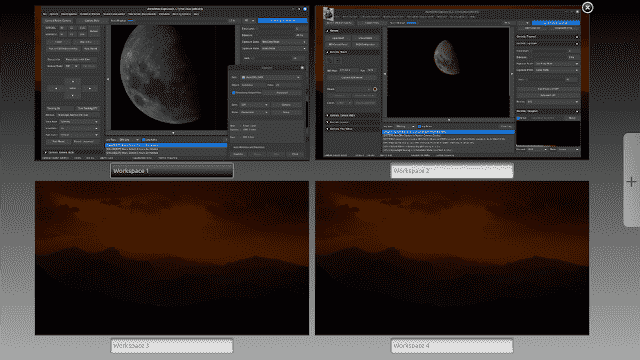
The ring screws on the guide scope were used to position the Moon in the guide scope instance.
It is not generally considered to be necessary to co-align the guidescope with the imaging scope, but this can be useful when dealing with a long focal length imaging scope. Moreover, we intend to do plate-solving experiments with the guide system.
AstroDMx Capture was used to capture two overlapping 1000-frame SER files of the Moon
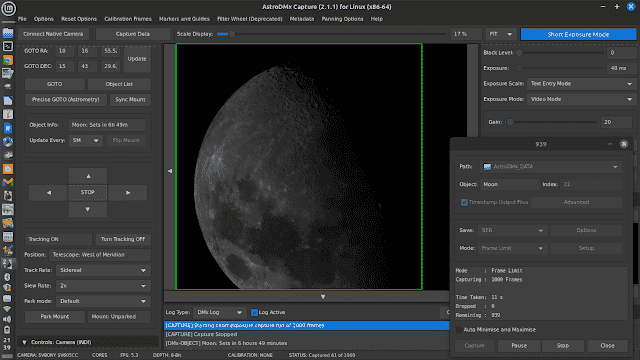
The best 900 frames of each SER file were stacked in Autostakkert running in Wine
The two resulting images were combined into a mosaic using Photopad Image Editor running in Wine
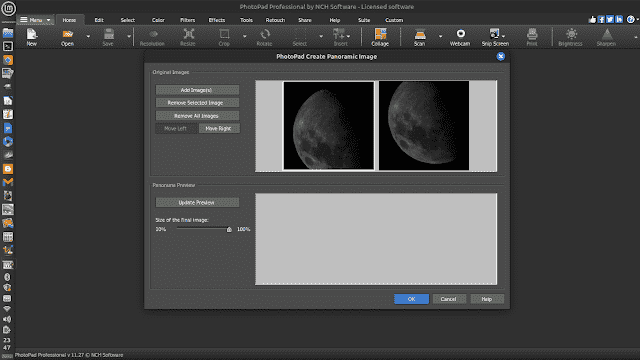
The resulting image
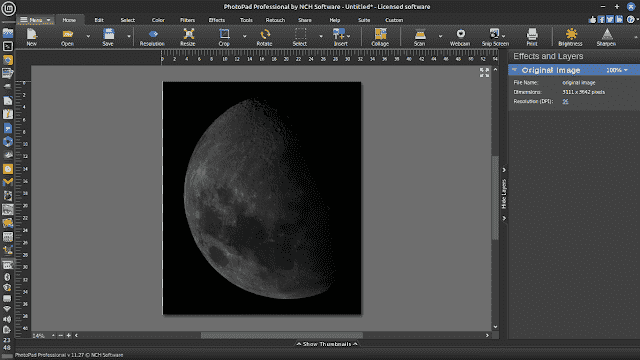
The resulting image was then wavelet-processed in waveSharp, a cross platform program written by Cor Berevoets (the developer of Registax) and a small team of co-programmers.
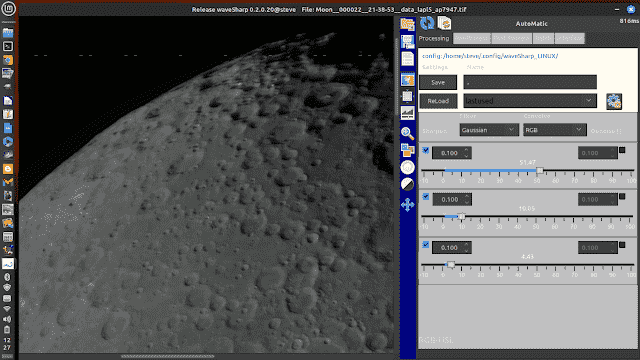
The sharpened image was post-processed in the Gimp 2.10
Click on the image to get a closer view
68.6% waxing, gibbous Moon
Although the SV605CC camera is primarily a cooled, deep sky imaging camera, it proved to be versatile and allowed high resolution imaging of the Moon with a Skymax 127 Maksutov telescope. The frame rates that can be achieved will depend on the settings of the bandwidth and USB speed as well as the computer being used for imaging. These experiments were done without making any changes to these parameters and the captures were achieved in acceptable times.








